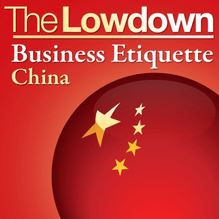-
 Univers
Univers
-
 Ebooks
Ebooks
-
 Livres audio
Livres audio
-
 Presse
Presse
-
 Podcasts
Podcasts
-
 BD
BD
-
 Documents
Documents
-
- Cours
- Révisions
- Ressources pédagogiques
- Sciences de l’éducation
- Manuels scolaires
- Langues
- Travaux de classe
- Annales de BEP
- Etudes supérieures
- Maternelle et primaire
- Fiches de lecture
- Orientation scolaire
- Méthodologie
- Corrigés de devoir
- Annales d’examens et concours
- Annales du bac
- Annales du brevet
- Rapports de stage
La lecture à portée de main
Vous pourrez modifier la taille du texte de cet ouvrage
Découvre YouScribe en t'inscrivant gratuitement
Je m'inscrisDécouvre YouScribe en t'inscrivant gratuitement
Je m'inscrisEn savoir plus
Vous pourrez modifier la taille du texte de cet ouvrage
En savoir plus

Description
Informations
| Publié par | Creative Content |
| Date de parution | 12 avril 2009 |
| Nombre de lectures | 0 |
| EAN13 | 9781906790110 |
| Langue | English |
Informations légales : prix de location à la page 0,0150€. Cette information est donnée uniquement à titre indicatif conformément à la législation en vigueur.
Extrait
The Lowdown: BUSINESS ETIQUETTE – CHINA
By Florian Loloum
THE LOWDOWN: BUSINESS ETIQUETTE - CHINA
First published in 2008
By Creative Content Ltd, Roxburghe House, Roxburghe House, 273-287 Regent Street, London, W1B 2HA.
Copyright © 2008 Creative Content Ltd
The moral right of Florian Loloum to be identified as the author of this work has been asserted by him in accordance with the Copyright, Designs and Patents Act, 1988.
All rights reserved. No part of this publication may be reproduced or transmitted in any form by any means, electronic or mechanical, including photocopying, recording or any information storage and retrieval system, without prior permission in writing from the publisher nor be otherwise circulated in any form or binding or cover other than that in which it is published.
Typesetting by CPI Rowe
Cover Design by Daniel at HCT Design
ISBN 978-1-906790 -11-0
www.creativecontentdigital.com
TABLE OF CONTENTS
PART 1 INTRODUCTION
PART 2 DOING BUSINESS IN CHINA
An overview, attitude to foreigners, guanxi and mianzi
PART 3 BUILDING A RELATIONSHIP
The four key steps, flexibility and patience, perception of time
PART 4 CHINESE HOLIDAYS
PART 5 LEGAL MATTERS
PART 6 ATTITUDES
Initiative, complaining, hierarchy
PART 7 DRESS
Dress code for men and women, significance of colors and numbers
PART 8 BUSINESS CARDS
PART 9 BUSINESS MEETINGS
Greetings, identifying the hierarchy, exchanging business cards, translators, speeches, cellphones, forms of address
PART 10 SOCIALIZING
Invitations, eating and drinking, karaoke, shopping
PART 11 GIFTS
Recipients, types of gifts, etiquette of giving and receiving gifts
PART 12 OTHER ACTIVITIES
Massage, gambling
PART 13 HUMOR
PART 14 TABOOS
Conversational topics to avoid
PART 15 DOs AND DON’Ts
PART 16 SOME USEFUL CHINESE PHRASES
APPENDIX Chinese words and phrases
PART 1 INTRODUCTION
Welcome to ‘Business Etiquette – China’. In an easy-to-use Q&A format, we’re going to give you tips and tools that will keep you ahead of the game when doing business in China.
We live and work in a global market. Knowing how to behave with courtesy in other countries will allow you to make a good impression, helping you to forge new friendships and alliances – thereby maximizing your potential and making you a greater asset to your company and your profession.
This isn’t a language course. It isn’t a detailed treatise on how to do business in China. But it will tell you a little about what to expect in business and social situations and give you some tips about how to behave – and how not to behave!
We’ll be talking a little bit about the history of China and how it informs attitudes today. We’ll discuss why it’s important to understand the concepts of ‘face’ and ‘networking.’ We’ll go through the stages of building a relationship with the Chinese and talk a little in general terms about doing business in China.
Then we’ll get more practical, as we take you through the etiquette you might need in a typical business meeting – and give you some tips to help you through the etiquette of that all-important business socialising. We’ll recap with a list of dos and don’ts – and finally, we’ll round it off with a few Chinese phrases that might come in handy. Let’s get started.
PART 2 DOING BUSINESS IN CHINA
Q:
China has such a varied and interesting history. Do you think that has had an impact on how business is done there today?
There’s no doubt that China’s rich history plays a paramount role in the way the Chinese see the world today. It’s no coincidence that China calls itself the ‘Middle Kingdom.’ For centuries, the Chinese have seen their country as the center of the world. China may have opened its doors to foreigners and the Chinese may be fascinated by Western methods and technologies, but they are still proud of their past superiority – and this history has had an effect on the way they do business.
For example, the teachings of Confucius: They play a central role in how the Chinese think and behave even today. In case you were asleep during class, Confucius was a Chinese philosopher of the 5th and 6th centuries BC.
Q:
I’m not going to have to study this philosophy, am I?
No. The only important thing for you to understand is that the principles of Confucianism aim at maintaining a community through interpersonal harmony. This harmony is maintained when each member of the community puts the needs of the community before his or her own needs.
Deference toward authority and respect for age are two Confucian principles. The notion of rank is highly respected. This is something to keep in mind when doing business in China. When meeting with an older person, or someone in a higher position – for example, a Chairman or General Manager - it’s important to act with deference, showing an obvious respect for his or her experience.
Let me say something about gender at this point: Most executives in China are men, but there are a significant number of female Chairwomen and General Managers - particularly in Shanghai. Simply for ease, I’ll be mostly using ‘he’ and ‘him’ throughout.
Q:
Generally speaking, what’s the attitude to foreigners in China?
As a foreigner, you’ll be warmly welcomed. But at the same time, you’ll be under a certain amount of scrutiny. This is mainly due to curiosity. The Chinese don’t show their emotions or true thoughts easily, so you may not even notice. But the way you act and re-act will be noticed, analysed - and sometimes even mimicked or copied.
Q:
What, in your opinion, is the most important thing to remember about doing business in China?
There are two concepts that are vital to know about if you’re going to be doing business in China: the first is ‘mianzi’ or ‘face,’ and the second is ‘guanxi’ - which we’ll call ‘networking’. Let’s start with ‘face.’ It’s probably the most important concept to grasp when doing business in China.
Q:
What is it, exactly?
‘Face’ is prestige - respect received from others and respect given to others. One’s reputation is also part of ‘face.’
Losing face for the Chinese has a far greater emotional impact than what we in the west understand as ‘shame’ – and in China, everyone has to preserve face at any cost. A public insult, a reprimand or a personal affront will obviously lead to a loss of face. But a contradiction, a rebuff, or refusing an invitation might also cause a loss of face. Even accepting a new idea can be perceived in some quarters as a loss of face. Losing your temper, or in fact showing any strong negative emotion, constitutes a serious loss of face for both the one losing his temper – and anyone caught in the crossfire.
Q:
How does this apply to me and how I behave?
It may be worth keeping in mind that simply saying ‘no’ to a request could be perceived as an insult – and hence, a loss of face. So if you can’t grant a request, propose an alternative.
Q:
Such as?
Let’s say that after a long and successful meeting, your Chinese colleague asks you to dinner. This would mean that he wants to conclude the agreement at a more personal level. But let’s say you can’t accept his invitation, as you need to meet with his competitor or review the accounting papers he gave you.
-
 Univers
Univers
-
 Ebooks
Ebooks
-
 Livres audio
Livres audio
-
 Presse
Presse
-
 Podcasts
Podcasts
-
 BD
BD
-
 Documents
Documents
-
Jeunesse
-
Littérature
-
Ressources professionnelles
-
Santé et bien-être
-
Savoirs
-
Education
-
Loisirs et hobbies
-
Art, musique et cinéma
-
Actualité et débat de société
-
Jeunesse
-
Littérature
-
Ressources professionnelles
-
Santé et bien-être
-
Savoirs
-
Education
-
Loisirs et hobbies
-
Art, musique et cinéma
-
Actualité et débat de société
-
Actualités
-
Lifestyle
-
Presse jeunesse
-
Presse professionnelle
-
Pratique
-
Presse sportive
-
Presse internationale
-
Culture & Médias
-
Action et Aventures
-
Science-fiction et Fantasy
-
Société
-
Jeunesse
-
Littérature
-
Ressources professionnelles
-
Santé et bien-être
-
Savoirs
-
Education
-
Loisirs et hobbies
-
Art, musique et cinéma
-
Actualité et débat de société
- Cours
- Révisions
- Ressources pédagogiques
- Sciences de l’éducation
- Manuels scolaires
- Langues
- Travaux de classe
- Annales de BEP
- Etudes supérieures
- Maternelle et primaire
- Fiches de lecture
- Orientation scolaire
- Méthodologie
- Corrigés de devoir
- Annales d’examens et concours
- Annales du bac
- Annales du brevet
- Rapports de stage

















